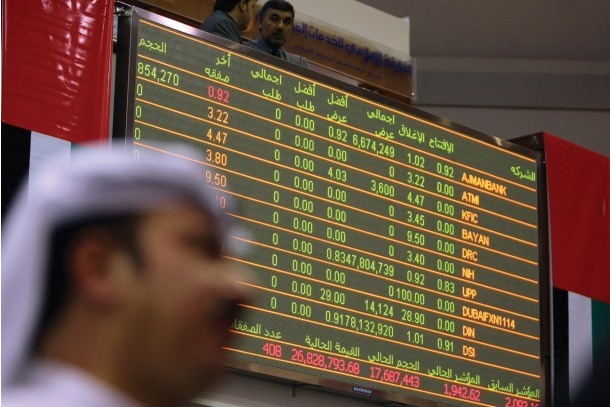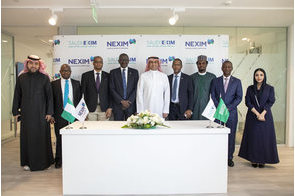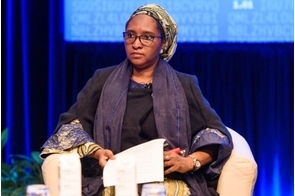Latest News
Global Islamic finance assets grow by 14 per cent to $2.88 trillion

News Highlight
Nigeria ranks 13th in the IFDI 2020 report, positioning the country as a top Islamic finance market.
The Islamic Finance Development Report (IFDR) 2020 released today has shown that Islamic finance assets increased by 14 per cent to $2.88 trillion in 2019 – the highest recorded growth for the industry since the global financial crisis (GFC). This and other findings are included in the seventh edition of the IFDR published by the Islamic Corporation for the Development of the Private Sector (ICD), an arm of the Islamic Development Bank (IsDB), and Refinitiv, a leading provider of financial markets data and infrastructure.
According to the latest report, themed, “Progressing through Adversity,” the double-digit growth of the global Islamic finance assets last year was due in part to elevated levels of sukuk issuance in the traditional markets in the Gulf Cooperation Council (GCC) countries and Southeast Asia. The union consisting of Arab states of the Persian Gulf accounted for $1.2 trillion of global Islamic finance assets in 2019, followed by Middle East and North Africa (MENA) ($755 billion) (excluding the GCC), and Southeast Asia ($685 billion).
The report is based on the Islamic Finance Development Indicator (IFDI), which consists of five key indicators in the development of Islamic finance: quantitative development; knowledge; governance; corporate social responsibility (CSR); and awareness. The IFDI 2020 covers 135 countries and dependencies with a presence of Islamic finance.
Malaysia, Indonesia, Bahrain, United Arab Emirates (UA) and Saudi Arabia ranked as the top five developed countries globally in terms of Islamic finance. Indonesia's rise to second place in the latest IFDI rankings was attributed to its government's Islamic finance knowledge initiatives.
Nigeria ranks 13th in the IFDI 2020 report, positioning the country as a top Islamic finance market. Among the five sub-indicators, Nigeria achieved the highest score of 60 under governance (out of a maximum value of 200) and the lowest score of 5 under quantitative development.
According to the report, the Islamic banking sector contributed the bulk of the global Islamic finance assets in 2019, accounting for 69 per cent or $1.99 trillion in global assets. This was followed by sukuk – the non-interest, Sharia-compliant bond – with 19 per cent or $538 billion. Islamic funds accounted for 5 per cent, while Takaful – a type of Islamic insurance – contributed 2 per cent, and other Islamic finance instruments accounted for 5 per cent.
“This market is worth nearly $3 trillion already and I’m excited about its future, particularly when it comes to Sukuk and because Islamic finance has so much in common with sustainable finance – one of the most significant trends in global business today,” said David Craig, CEO of Refinitiv.
The IFDR 2020 says green and socially responsible investment (SRI) sukuk grew in prominence in the UAE and Southeast Asia and have continued to grow in popularity in 2020 with the entrance of new issuers such as Saudi Electricity Co. Given these developments, global Islamic finance assets are forecast to reach $3.69 trillion by 2024, according to the report. The industry growth is expected to slow to single digits over the next four years as the world attempts to deal with the ongoing coronavirus pandemic.
“We believe that the analyses and information provided in this year’s report will serve as a vital reference point for the state of the Islamic finance industry during these difficult times and we remain convinced that Islamic finance can play a major role in alleviating the social and economic consequences of the COVID-19 pandemic,” said Ayman Sejiny, the CEO of ICD.
Related News
Latest Blogs
- How Tinubu is ensuring equitable access to public services
- Nigeria’s economic reform faces new threats
- What Ould Tah’s tenure at BADEA reveals about his AfDB candidacy
- Implementation strategy crucial for the success of 12-4 education policy
- A senator’s suspension threatens the right of representation
Most Popular News
- Artificial intelligence can help to reduce youth unemployment in Africa – ...
- Tariffs stir inflation fears in US but offer targeted industry gains ...
- Nigeria records $6.83 billion balance of payments surplus in 2024
- Tinubu appoints new Board Chair, Group CEO for NNPC Limited
- CBN net reserve hits $23.1 billion, the highest in three years
- Soaring civil unrest worries companies and insurers, says Allianz









